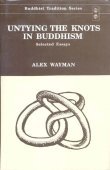Atantra, Atamtra: 7 definitions
Introduction:
Atantra means something in Hinduism, Sanskrit. If you want to know the exact meaning, history, etymology or English translation of this term then check out the descriptions on this page. Add your comment or reference to a book if you want to contribute to this summary article.
In Hinduism
Vyakarana (Sanskrit grammar)
Source: Wikisource: A dictionary of Sanskrit grammarAtantra (अतन्त्र).—Implying no specific purpose: not intended to teach anything, अविवक्षित (avivakṣita); e.g. ह्रस्वग्रहणमतन्त्रम् (hrasvagrahaṇamatantram) Kāś and Si. Kau. on तस्यादित उदात्तमर्धह्रस्वम् (tasyādita udāttamardhahrasvam) P.1.2.32: cf. also अतन्त्रं तरनिर्देशः (atantraṃ taranirdeśaḥ) (the use of तरप् (tarap) does not necessarily convey the sense of the comparative degree in Pāṇini's rules) M. Bh. on P. I.2.33. This statement has been given as a distinct Paribhāṣa by Vyāḍi and Sākaṭāyana. The author of the Mahābhāṣya appears to have quoted it from the writings of Vyāḍi and the earlier grammarians See also M. Bh. on अल्पाच्तरम् (alpāctaram) P. II.2.34.

Vyakarana (व्याकरण, vyākaraṇa) refers to Sanskrit grammar and represents one of the six additional sciences (vedanga) to be studied along with the Vedas. Vyakarana concerns itself with the rules of Sanskrit grammar and linguistic analysis in order to establish the correct context of words and sentences.
Languages of India and abroad
Sanskrit dictionary
Source: DDSA: The practical Sanskrit-English dictionaryAtantra (अतन्त्र).—a. [na. ba.]
1) Having no ropes or musical strings (as a musical instrument); नातन्त्री वाद्यते वीणा (nātantrī vādyate vīṇā) Rām.
2) Unrestrained; not necessarily binding; not being the object of the rule under consideration; ह्रस्वग्रहणमतन्त्रम्, क्लीबत्वं °न्त्रम् (hrasvagrahaṇamatantram, klībatvaṃ °ntram) Sk. Something which is not intended; on which there is no emphasis or stress (vārttika 2.2.34.1).
3) Without formulas or empirical actions.
4) Not (having the binding force of) a scientific statement; तत्राविज्ञातग्रहणमतन्त्रमिति कल्प्येत (tatrāvijñātagrahaṇamatantramiti kalpyeta) | ŚB. on MS.6.1.7.
-tvam meaninglessness, superfluity, superfluous nature. किं तु इतरस्मिन् पक्षे बाध्यतेतरां श्रुतिः । ऐन्द्रशब्दस्यातन्त्रत्वात् (kiṃ tu itarasmin pakṣe bādhyatetarāṃ śrutiḥ | aindraśabdasyātantratvāt) | ŚB. on MS.6.4.29.
Source: Cologne Digital Sanskrit Dictionaries: Monier-Williams Sanskrit-English Dictionary1) Atantra (अतन्त्र):—[=a-tantra] mfn. having no cords
2) [v.s. ...] having no (musical) strings
3) [v.s. ...] unrestrained
4) [v.s. ...] n. not the object of a rule or of the rule under consideration.
Source: Cologne Digital Sanskrit Dictionaries: Goldstücker Sanskrit-English DictionaryAtantra (अतन्त्र):—I. [tatpurusha compound] n.
(-ntram) Not the object of a rule or of the rule in question. E. a neg. and tantra. Ii. [bahuvrihi compound] m. f. n.
(-ntraḥ-ntrī-ntram) 1) Having no string or rope &c.
2) Unrestrained. See tantra. E. a priv. and tantra.
[Sanskrit to German]
Sanskrit, also spelled संस्कृतम् (saṃskṛtam), is an ancient language of India commonly seen as the grandmother of the Indo-European language family (even English!). Closely allied with Prakrit and Pali, Sanskrit is more exhaustive in both grammar and terms and has the most extensive collection of literature in the world, greatly surpassing its sister-languages Greek and Latin.
Kannada-English dictionary
Source: Alar: Kannada-English corpusAtaṃtra (ಅತಂತ್ರ):—
1) [adjective] not having or bound by or held by a string or a thread.
2) [adjective] not having a leader, guide or a manager.
3) [adjective] unrestrained; not bound by moral or social rules.
4) [adjective] not secured; not fixed; having no hopes of security.
Kannada is a Dravidian language (as opposed to the Indo-European language family) mainly spoken in the southwestern region of India.
See also (Relevant definitions)
Ends with (+594): Abdatantra, Abhidhanatantra, Abhidhanottaratantra, Acarasaratantra, Acaratantra, Acharatantra, Adhanayajnatantra, Adhvaratantra, Adivatulatantra, Advayatantra, Agadatantra, Agamottaratantra, Agniveshatantra, Ajitamahatantra, Ajyabhagapurvatantra, Ajyatantra, Akashabhairavatantra, Akulagamatantra, Akulaviratantra, Alpatamtra.
Full-text (+437): Tantrata, Avivakshita, Kuloddesha, Kularnava, Bijabhidhana, Shaktagama, Kaulavaliya, Purvatantra, Kamaratna, Kaivalyatantra, Shambhavadipika, Vartulatantra, Vaishnavitantra, Vishvoddharatantra, Shriyamala, Merutantra, Bhairavatantra, Adiyamala, Kulasara, Svarnatantra.
Relevant text
Search found 16 books and stories containing Atantra, A-tantra, Atamtra, Ataṃtra; (plurals include: Atantras, tantras, Atamtras, Ataṃtras). You can also click to the full overview containing English textual excerpts. Below are direct links for the most relevant articles:
Bhakti-rasamrta-sindhu (by Śrīla Rūpa Gosvāmī)
Verse 1.2.285 < [Part 2 - Devotional Service in Practice (sādhana-bhakti)]
Verse 1.3.2 < [Part 3 - Devotional Service in Ecstasy (bhāva-bhakti)]
Verse 1.2.163 < [Part 2 - Devotional Service in Practice (sādhana-bhakti)]
Kathasaritsagara (the Ocean of Story) (by Somadeva)
Guhyagarbha Tantra (with Commentary) (by Gyurme Dorje)
The Great Chariot (by Longchenpa)
Part 2a - The extensive explanation of the eighteen freedoms and favors < [A. The general explanation of being free and well favored, so difficult to obtain]
Charaka Samhita and Sushruta Samhita (by Nayana Sharma)
The Question of Authorship < [Chapter 1]
Lakulisha-Pashupata (Philosophy and Practice) (by Geetika Kaw Kher)
Locating the Lakulisa-Pasupata rites in the world of Saivite rituals < [Chapter 3 - The Ritualistic Context]
Apparent Monotheism < [Chapter 4 - The Philosophical Context]
Overall Structure and Methodological considerations < [Introduction]
Related products
